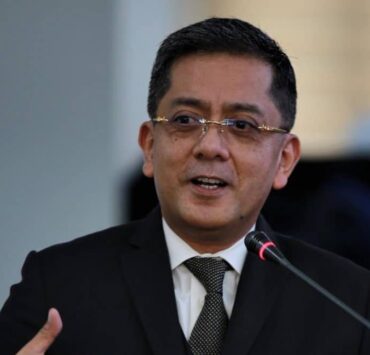23 Army men relieved over soldier’s death

COTABATO CITY—The Philippine Army’s 6th Infantry Division (ID) on Monday ordered the relief of 23 military personnel after the death last week of a young recruit following a reception rite at the headquarters of the 6th Infantry Battalion (IB) in Datu Piang, Maguindanao del Sur.
Lt. Col. Roden Orbon, spokesperson for the 6th ID, told the Inquirer that the relief order would give way for an ongoing investigations on the death of Private Charlie Patigayon, 22, who hailed from Barangay Mukas of Kolambugan town in Lanao del Norte province, first reported to have died of kidney failure after he collapsed during the reception rite inside the 6th IB headquarters on July 30.
Patigayon had just completed his three-month military training in Tarlac province in February this year.
The 6th IB would have been his first assignment had he not collapsed during the reception and died a day later.
Orbon said that 21 of the relieved personnel all belonged to one platoon under the same company while the two others were the company commanding officer and his executive officer, both with the rank of lieutenant.
“The 21 (rank and file personnel), who were present during the reception rite, are now restricted at the battalion headquarters of the 6th IB,” Orbon said.
Maj. Gen. Donald M. Gumiran, the commander for the 6th ID, ordered a deeper probe to determine if there was maltreatment that triggered Patigayon’s death.
“They will be facing administrative and civil cases once abuses are proven,” Orbon added.
Only Patigayon and two other young recruits were welcomed by the 6th IB during the ceremonial acceptance to officially embrace them as members of the military unit, when Patigayon suddenly collapsed and was immediately brought to the Camp Siongco Hospital at the 6th ID’s camp. He died the following day.
“We are still investigating to determine if there are abuses against the young soldier,” Orbon said.
Reception rites had long been observed as a tradition to welcome new members into the military community and must be conducted with utmost consideration for the health and safety of soldiers, the 6th ID said in a statement.
“These activities must remain within the bounds of existing military policies and regulations, and any deviation or breach that compromises the welfare of personnel is subject to disciplinary action,” the statement added.
The 6th ID said it maintained a “zero-tolerance” policy against practices that endangered the lives of the troops, according to Orbon.
‘Military justice system’
In Manila, Army spokesperson Col. Louie Dema-ala on Monday confirmed that the 23 personnel, including the two officers, were under investigation in relation to Patigayon’s death.
The two officers were also relieved from their post, Dema-ala also said.
“We assure Private Patigayon’s family that the Philippine Army is committed to pursuing justice,” Dema-ala said in a statement.
He added: “Should the investigation confirm wrongdoing, those responsible will be held fully accountable under the military justice system and all applicable laws.”
Orbon earlier said initial medical findings indicated that Patigayon died of kidney failure and that there was “no indications of physical abuse.”
Dema-ala said the Army, in “strict adherence” to the Anti-Hazing Act of 2018, upholds a “zero-tolerance policy against any practices that endanger the safety and well-being of its personnel.”
‘Unnecessary, abusive’
Days after the incident, Col. Harold Cabunoc, former Armed Forces of the Philippines public affairs office chief, said the reception rite of privates are “unnecessary and abusive”
“It causes injuries, demoralization and deaths,” Cabunoc, a vocal advocate against hazing in the military, said in a Facebook post on Aug. 1.
Instead of such reception ceremonies, Cabunoc said battalion commanders and company commanders should instead teach private soldiers necessary military skills, lead outreach programs, financial literacy seminars, cultural sensitivity training for tribal communities, among other activities.
Cabunoc said such activities are better than “hurting, humiliating, and intimidating [privates], which are barbaric practices.”

















